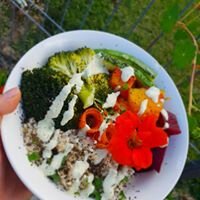I believe we are all cyclical by nature just like our environment, as is our body, our mind, and our spirit. As well as how we should look after our physical and metaphysical wellbeing. As we revolve around the seasons, we should be looking at what types of foods we should eat, and how to prepare them. Below is a quick rundown of how our body system is working during winter, seasonal food guide and how to prepare your foods for winter.
Winter spirit and emotions. Winter brings the cooler darker months, and we might not have the same energy for moving as fast, as we did in the other months of the year. Which is totally ok! I like to think of this time of the year as a time for everyone to slow down, get introverted (hello introverts, best time of the year) learning to become more introspective, self-reflective and be receptive without too much judgement. Mediation practices or slow yoga is great for this.
In Chinese Medicine Winter is associated with the water element and yin processes, passive, dark, inside, body, deficiencies come up to the surface, and is said to be related to kidney and bladder process, think excretion. Out with the old to get read for the new (being spring.)
Imbalances could occur causing us to feel agitated, irritated, anxious, or insecure. Use this time to move through and understand our emotional self to be better prepared for the year to come, (where a bit backwards in the Southern Hemisphere) but you could look at the winter season as the end season and spring as the new year to come.
Seek meditation and mindfulness practices, slow yoga, EFT tapping, even read a good self-help book or some topic that you have always wanted to learn more about.
Winter movement. Even though we should be slowing down, and we are seeking inner warmth, we must still stay active to keep warm and keep the body mobile. Think yoga, again long walks, be in nature, deep breathing and maybe if you are brave enough, an early morning swim (I am on the Northern East Coast of Australia, though Wim Hoff Breathing anyone.) Or hula hooping, I have a few beginners to tutorials to get you spinning, I find hooping great for learning how to connect into your body and a movement meditation to relieve a busy mind. Plus it’s a lot of fun and will leave you feeling joyous.
If you have a strict gym routine then keep it, though if you are feeling overwhelmed and you miss a day or two, do not beat yourself up. Or maybe change a day or two of high intensity exercise for long walks, yoga (some slower styles like yin and restorative practices.) and take a slow breath or two.
Winter foods and preparation. Again, let us think of grounding, slowing down and storing energy for warmer months, foods to support and balance the kidneys and bladder.
Winter foods include whole grains, beans, and root vegetables, as they are all great for grounding, though I tend to use one or the other, so not to cause indigestion or bloating.
Cooking foods for longer periods at low temperatures, think stews and soups, broths (great for repair and immunity) get that slow cooker out, it will be your best friend in winter. Steamed or baked seasonal greens and veggies (check out winter list at the bottom of the page), dried foods, fermented foods, nuts, seeds, tofu, tempeh, small amounts of lean animal proteins and fatty fish.
Use flavouring such as salty and bitter for centring properties (though don’t go overboard with the salt ;) they also help to bring external body temperature down and build inner warmth. Bitter foods include, lettuce, watercress, endive, quinoa, rye, oats, celery, alfalfa sprouts, celery, cabbages, and citrus fruits. Salty foods to incorporate are miso, soy sauce, seaweed, millet, and barley, and of course sea salts.
People who tend to be colder or have lung issues in winter, could benefit from more warmer spices, to balance yang properties in the body, such as cloves, fenugreek, fennel seeds, onion family, cinnamon and white meats and fatty fish.
People who feel more anxious or irritable in winter, have lower back pain, fever, dry mouth, could benefit from cooling and grounding foods, pluses, grains, berries, potato, greens, seaweed, seeds, especially black sesame, fatty fish, tofu and lean protein (in small amounts).
At this time of the year it could be best to avoid raw foods, cold frozen fruit, sugar, dairy, summer fruits and vegetables, excessive salt or too much coffee.
Check out my winter vegetables list here.




